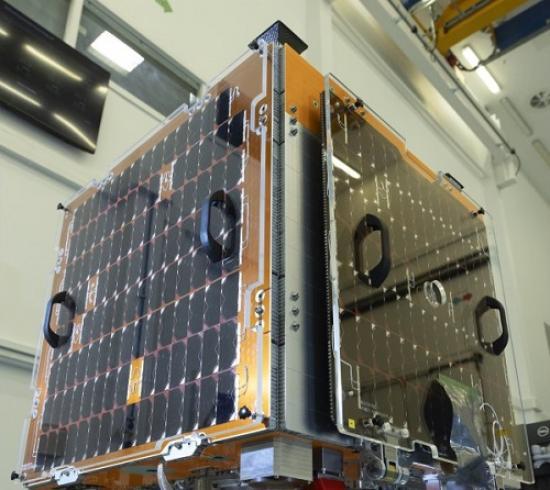DSTL Scientific Expertise And Advice Is At The Heart Of The Ministry Of Defence's Ambitions In Space
24th October 2024

Scientists from the Defence Science and Technology Laboratory (Dstl) are at the forefront of designing and developing Defence's next generation satellite constellation - a system that will bring giant leaps in operational advantage to the armed forces.
We have developed new collaborative ways of working with both Space Command and Defence Equipment and Support (DE&S).
This will deliver the next generation multi-satellite system to support greater global surveillance and intelligence for military operations - known as the ISTARI programme.
ISTARI will cost £968 million and involves the development of a constellation (group) of satellites to deliver global intelligence, surveillance and reconnaissance and to send data and information rapidly to decision makers across the globe. A series of operational capability demonstrator missions will first be carried out to test the concept.
Dstl is leading the initial constellation design and development. Using our evidence-based decision-making and systems engineering we are working with DE&S to jointly deliver the missions and bring them into service for Space Command.
Taking a multi-disciplinary approach enables more rapid decision-making and sharing of best practice across technical, programmatic and operational disciplines. It enables defence to ask the right questions and make the right decisions to develop and deliver capability effectively and efficiently.
Tyche: MOD's first sovereign Intelligence Surveillance and Reconnaissance (ISR) satellite
Space Command's first satellite, Tyche, launched in August aboard SpaceX Falcon 9. Dstl provided technical assurance to Tyche, which was built by UK industry.
Tyche is an electro-optical imaging satellite capable of collecting images of the ground, and short image sequences of ground locations, to detect moving objects. It also possesses an additional on-board processor for immediate processing of data collected, including the ability to upload Artificial Intelligence and Machine Learning algorithms for data reduction.
Tyche will be able to communicate with commercial data relays in geostationary orbit to reduce data latency and increase opportunities for tasking.
A key aspect to the experimentation Tyche will deliver will be the opportunity to demonstrate how the satellite interfaces with the wider emerging MOD space architecture.
Goonhilly Earth Station: new communications ground stations in Cornwall
Dstl is also building on the existing ground facilities to enhance space operations. In conjunction with the National Security Strategic Investment Fund (NSSIF), 2 new remote ground stations have been installed at Goonhilly Earth Station (GES) in Cornwall to expand Dstl's space-to-ground capability and enable increase experimentation.
PHOTO
Space Command's first satellite, Tyche
